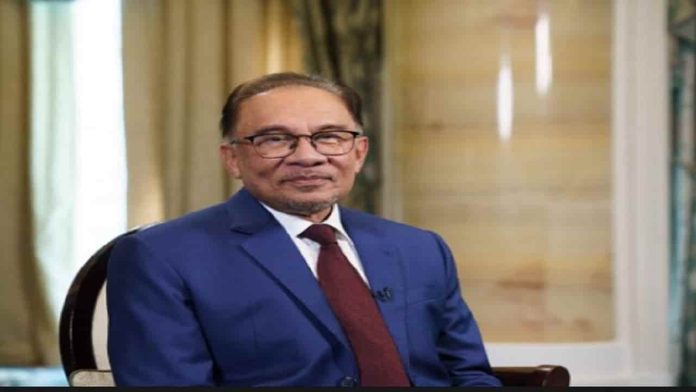By Asif Ullah Khan
The outburst of Matt Healy, the lead singer of the British band The 1975, against Malaysia’s anti-LGBTQ laws during a music festival in Kuala Lumpur, has again brought to the fore the issue which has troubled the country since its inception.
Of course, the music festival was cancelled and The 1975 also called off its tour to Indonesia and Taiwan due to “current circumstances”.
The timing of Healy raising the issue of LGBTQ is important as the current prime minister of Malaysia, Anwar Ibrahim, has been twice convicted on charges of sodomy.
Like many other countries, Malaysian politicians have used homophobia when the government of the day faced public criticism of abuses of power, excessive corruption and patronage. Prime Minister Dr Mahathir Mohamed sacked Anwar, his deputy, in 1998 when Anwar raised issues of corruption against him. The best way to remove Anwar from the political scene was to charge him with homosexuality which is a punishable crime under Section 377A of the Malaysian penal code.
Ironically, when Anwar joined hands with Dr Mahathir during the 2018 general election, he said he shares Prime Minister Mahathir Mohamad’s view that Malaysia does not accept LGBT culture or same-sex marriages, but reiterated colonial-era sodomy laws can be abused and need review.
Anwar said Islam, and many other religions, do not sanction same-sex marriages. “The sanctity of marriage is between a man and a woman. This is our understanding and that of many other religions.
“What I was saying is that the laws on sodomy are not fair, outdated, and need to be reviewed.”
However, when Anwar became prime minister after the 2022 general election, his views on the issue completely changed. Bowing to the campaign against him by Malaysia’s hardline Pan-Islamic Party (PAS) that prime minister Anwar and his allies would legalize same-sex marriage, Anwar clarified that his government would never recognise the LGBT community, along with communism and secularism.
According to Dr Arjun Rajkhowa, University of Melbourne, the legislative and legal frameworks as well as the social climate – the seemingly irreversible post-colonial commitment to the criminalisation of homosexuality – that enabled Anwar’s persecution to occur will not go away.
He says the formidable power of fundamentalist religious groups and ideology in Malaysia, in parallel with the wider region, is unlikely to diminish soon. As experience has shown, any attempt to fight discrimination against LGBT+ individuals, whether it’s in the form of social and community outreach, legal reform or political reform, will be actively thwarted by fundamentalist religion.
Reacting to Anwar’s statement, Thilaga Sulathireh, co-founder of Justice for Sisters, said: “Such anti-LGBT sentiments, coupled with scapegoating for political expediency and survival, are dangerous. It has effectively increased LGBT-related misinformation and bias.” Justice for Sisters spotlights violence and persecution in Malaysia against transgender women.
“LGBTphobia in Malaysia is increasing at an alarming state,” Thilaga said. Her statement can be corroborated by the rise in the popularity of the PAS. In the 2022 general election, PAS with 49 seats, emerged as the single largest party in parliament, up from 18 in 2018.
With PAS breathing down his neck, there is little hope that prime minister Anwar will address this contentious issue. Dr Rajkhowa says there is a powerful constituency that favours the preservation of the status quo. Realpolitik places limitations on progress, and that will be the case in Malaysia, he added.


